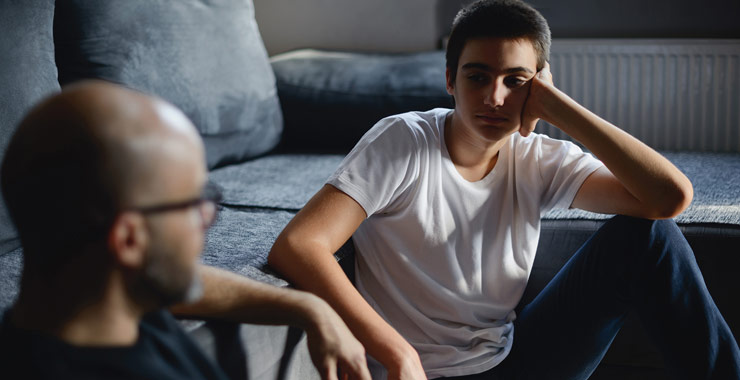The objective of this article is to help parents individualize their expectations for youngsters in an effort to decrease unnecessary pressure which can lead to acting out in adolescence if not before.

Summary: It is impossible to raise children without external pressures. However, we can mitigate these pressures with appropriate expectations, praise, and guidelines.
This article presents a discussion of these issues.
Achieving skills needed in adult life requires outside pressures: good organization of time, managing money, academic learning, help in understanding oneself and relationships with others--all of these require external goals and pressures to guide children as they grow up.
To insist that a studious but poorly coordinated boy play varsity tennis is self-defeating; suggesting that he try tennis for the fun of it is not. Pressuring an artistic child to become the third generation member of the family law firm may waste many years of that child's progress toward a satisfying and productive life. It also has the potential to make that child feel inferior and that path can lead to substance abuse and hanging out with other kids who feel unsuccessful.
Concentrating on the present is much more productive. Helping the child who is fearful of exams but learns to take them without becoming immobilized has demonstrated using present pressure to avoid future pressure and also lends skill to being more adequate in an important situation. The youngster who is afraid of meeting new people but, who, through success in a tennis tournament, comes to feel good about him or herself, now faces strangers more easily, has used the pressures of one sort to a constructive end in other areas of life. These successes that generalize can be looked upon as mastery and lend feelings of accomplishment and victory over difficult situations. These are the experiences that give children a sense of self. This sense of self helps them to make better judgments in the face of peer pressure in the wrong direction.
With an understanding of ourselves and with a loving but objective eye on our children, we can decide which child grows best with what degree of pressure. If help is needed, we should use the skills of professionals in education and psychotherapy. The children will be happier and healthier and so will the adults.
